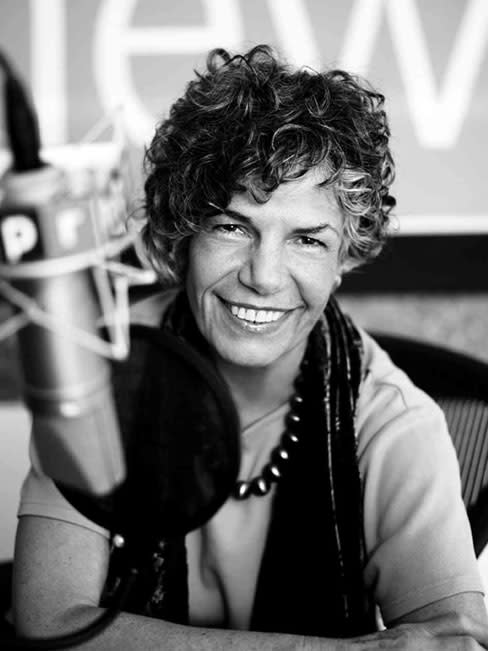An Interview with NPR's Susan Stamberg

For more than 40 years you’ve listened to her voice on National Public Radio shows like All Things Considered and Weekend Edition. Award-winning journalist Susan Stamberg was originally slated to be the keynote speaker at the Feb. 11 dinner for the Institute for the Ages Positive Aging Conference, which runs Feb. 9-12 at the Hyatt Regency, but had to cancel due to health reasons (replacing her is the equally wonderful Ina Jaffe, herself an award-winning journalist who covers the aging beat for NPR.) However, we were still able to speak with Stamberg about her career and why she loves radio; read on to learn more, and for more info about the Positive Aging Conference, call 365-4243 or go to institutefortheages.org.
Q. You’ve said that journalism is the best university there is. True?
A. True, especially at a place like NPR that’s filled with people with deep background, from something as silly as where to go skiing to explaining the latest scientific breakthrough.
Q. How did you start on your journalism career?
A. OJT—on-the-job training. I was an English major at Barnard College. At that time graduating from a liberal arts college was still a ticket to almost any job path. I still encourage young people to get that liberal arts education—and not to take journalism classes.
Q. What’s kept you going in the field all these years?
A. (Laugh) For about 110 years now…I’m just riddled with curiosity. I always want to ask “how come” or “what makes it work?”
Q. And why radio? What makes it special?
A. I love that question, because I’m so crazy for my medium! With television you can get so fixated on your hair or what you’re wearing. Radio gives you content—language, sound and music. The brain works in a different way to process language than images, and that’s a good thing for your brain.
Q. What have you learned in your years as a broadcast journalist, and how does it apply to lifelong learning?
A. I have had extraordinary people on the air, starting with Georgia O’Keeffe, and have been able to observe as they grew older and kept developing. I do a lot of cultural reporting these days, and among the people I’ll talk about in Sarasota there’s Paul Gauguin (not that I ever interviewed him) and Miep Gies, the woman who saved Anne Frank’s diary, along with people you’ve never heard of, like a woman who was severely disfigured and how she literally faced up to that and persevered after being scorned and turned away from. It’s inspirational, but it goes deeper than you think. You think you know everything about someone, but you don’t.
Some of the other people I might mention: David Hockney, who’s still finding new ways to work using his iPad and iPhone, and Leon Fleischer, the greatest pianist of his generation, and what he did to cope when his right hand gave up on him.
Q. Did you have any role models as you began in your profession?
A. When I started there were no women doing this work, and so when I began in radio I lowered my voice to sound more authoritative, like the men who were doing it. But I was told to be yourself, be who you are, and that was such freedom.
Q. Any clues from you on positive aging?
A. I come back to curiosity; that’s the through line that’s true of all these disparate people I’ve mentioned. My advice: Fall in love with something, find out all about it, and then fall in love with something else.



